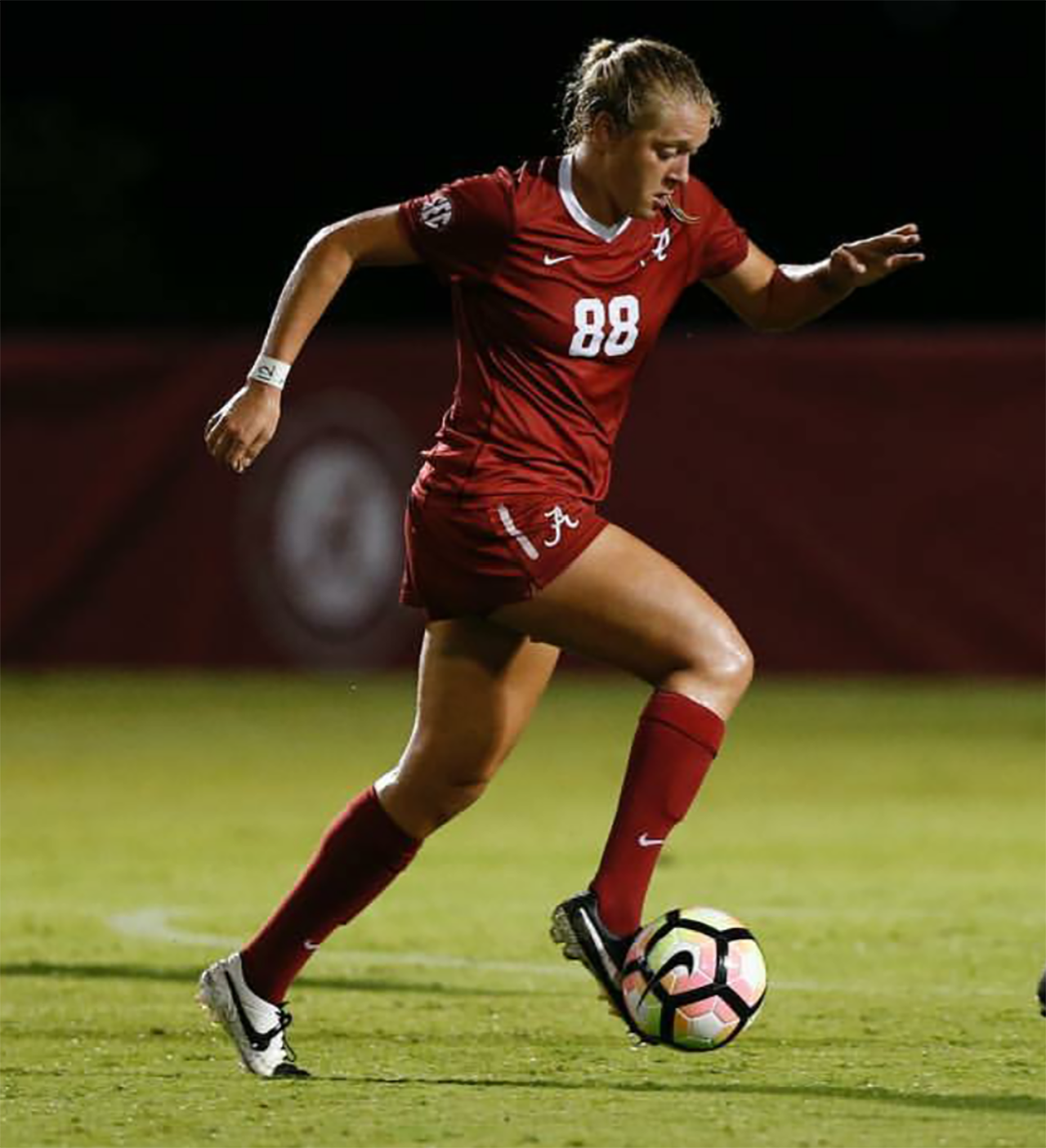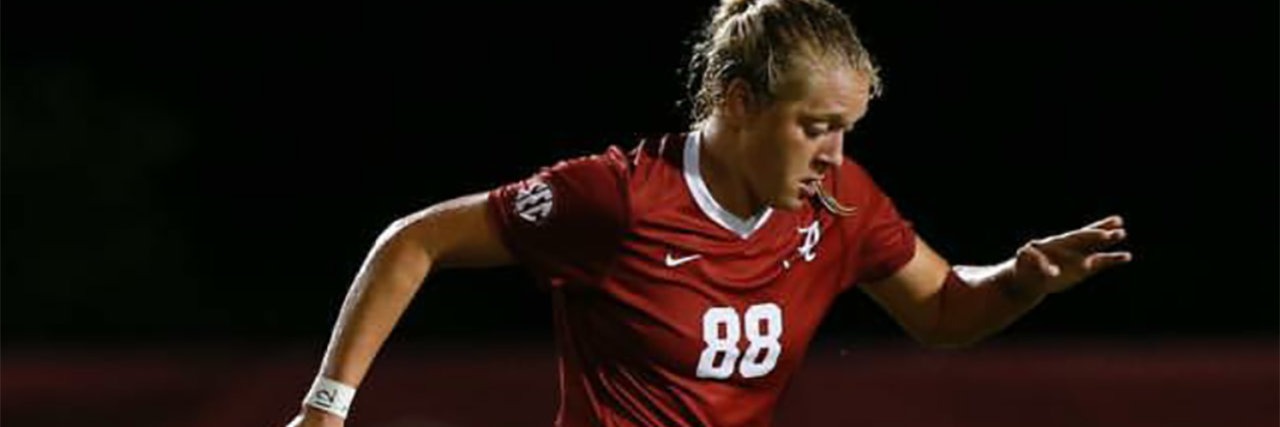Individuals on the autism spectrum often lack physical coordination and fine-motor skills. Many of us also struggle with overstimulation and prefer clear rules and quiet, uncluttered surroundings. With that being said, the demands of playing a team sport — the importance of communication, the unspoken communication on the field, the unpredictability — can really magnify those challenges we face. Which is why many people don’t think individuals with autism can play and succeed in competitive sports. Which is totally false!
People might see me — especially as a soccer player in the SEC — and question whether I really have autism. But if you went out for a coffee with me, talked with me for a few hours, I feel certain you would know.
I started playing rec soccer when I was 5. All the skills like dribbling, shooting, and understanding the movements of the game just came naturally to me. I quickly became obsessed with the game of soccer. I would play all the time, watch it on TV, study the Women’s National Team stats, and just think about it all day every day. Throughout my entire childhood, I was either at a team practice or in my backyard kicking a ball around.
The summer after my sophomore year of high school, I committed to playing soccer at the University of Alabama. I was so excited to just get there and start playing that I decided to graduate high school a semester early so I could start college early and get a head start.
One of my favorite parts about playing soccer for Alabama was that we were a family — and that mindset and focus wasn’t just within our team, it was also within the entire athletic department. When I was around my team, I knew no one wanted to make fun of me or joke about something I did. I was able to truly be myself and not mask my autism. Inclusion was never an issue I faced at Alabama. My teammates taught me how to be more social by convincing me to go out with them on the weekends, or go to a coffee shop to work on homework. They made my life more fun.

However, my life as an autistic student-athlete wasn’t always easy. I struggled with a lot of things on and off the field that my neurotypical teammates didn’t seem to struggle with. For example, road trips were extremely difficult for me to cope with because my daily habits/rituals were thrown off, I had to sleep in a unfamiliar bed, and didn’t have any alone time to decompress. Spending the majority of my waking hours with my teammates was difficult too because of the constant socialization — understanding the flow of conversation, recognizing sarcasm, and all the other communication difficulties that come with my autism.
I had a hard time during our workouts and practices in the barn (indoor field and weight room) because it caused me sensory overload — the barn had a strong smell, the rough feeling of the turf, the lighting, and loud music to name a few of the issues. But I still had to participate in everything despite all my sensitivities to all those sensory inputs. Managing all these issues was very challenging, but with the help of my teammates, coaches, trainers and medical staff, I was able to do so effectively.
Despite all the difficulties that have come with being an athlete with autism, once I stepped on the field, almost all of my problems disappeared. I became so focused on playing that the loud cheering crowd or the bright stadium lights didn’t bother me too much. My presence on the field was totally different than when I wasn’t playing. I was confident, vocal and extremely aggressive. While watching me play, I believe nobody would have ever guessed that I have autism.
My autism definitely benefited my ability to play soccer. While fixation can prove to be a disruptive force for many autistic individuals, my obsession with soccer turned into a thriving career. My brain’s ability to recognize patterns and connect dots allowed me to visualize the flow of the game in a unique and effective way. Additionally, my exquisite attention to detail allowed me to work on a skill or exercise over and over again until I became satisfied with my improvement.
With the help of my loving family and team, I’ve been able to reach great heights and succeed in the game of soccer. The sport has given me the feeling that I belong somewhere and that I am valued, and I am forever grateful!

